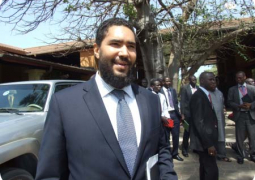
Directorate of Health Promotion Unit under the Ministry of Health and Social Welfare recently organised a one-day orientation for journalists on non-communicable disease (NCD) prevention and control in The Gambia.
The sensitization, funded by Social Security and Housing Finance Cooperation, was held at the National Malaria Control Program (NMPC) office in Kanifing.
Speaking at the opening ceremony, Fatim Badjie, Minister of Health and Social Welfare, expressed appreciation with Social Security and Housing Finance Cooperation for their significant contribution towards the orientation process.
“We can definitely yield significant results in the prevention and control of NCDs in The Gambia,” Hon. Badjie said. “My ministry under the leadership of President Jammeh recently created a Directorate of Health and Education in which the Non-Communicable Disease unit is located.”
This has given the NCDs the prominence it deserves within her ministry, she said, adding that the key strategy in NCDs elimination and control is through awareness and hence early detection or rightly diagnosis.
“The Government of The Gambia through President Jammeh’s ‘back to the land’ initiative is promoting the cultivation and consumption of homegrown foods to reduce the prevalence of unhealthy diet,” she said.
This clarion call has generated interest among the Gambian populace and has improved food security among the communities, the health minister said.
She explained that The Gambia has legislated against public smoking through the enactment in 1998 of the prohibition of smoking in public places as well as banned tobacco advertisement in the mass media through the 2003 Anti-Tobacco Advertisement Bill.
“The Gambia at this moment has finalised and endorsed a five-year integrated policy and action plan for NCD prevention and control, the policy and the creation of a directorate of health promotion and education are intended to give the strategic push needed to address health promotion and NCD interventions.”
Minister Badjie finally stated that adequate public sensitization will have great potential in reducing the risk factors, improve good health and lower the negative economic outcome associated with the burdens of the NCDs.
Modou Njai, director of health promotion, describes the media as partners in disseminating health information and urges them to make good use of the knowledge gained during the orientation.
Momodou Gassama of WHO said the World Health Organisation has been working closely with the health ministry on health issues, noting that the NCDs is a killer disease, which has now become a global agenda.
He also described Minister Badjie as the champion of the fight against NCDs in the country, who is out to ensure it is out of the country.
Adam Jagne-Sonko, NMCP programme manager, thanked Minister Badjie for her support on NCD, noting that it is one of the killer diseases in the world and should be given a focus.
Read Other Articles In Article (Archive)
Gambia commemorates ‘No plastic day’
May 19, 2015, 12:05 PM




